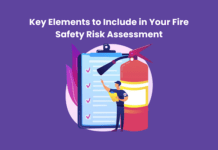How many times did you hear service providers claiming themselves as the perfect option for cloud businesses owing to the availability of their network? Did you exactly find what they wanted to say? And what do you do know about the benefit of business related to virtual private cloud? Does network have a critical impact on your app or is that the redundant item on that list? Well, the answers are right here. To help you understand cloud computing, this post would give an overview of VPC and its benefits. To know more, keep reading on.
Before going into the depth of elucidating the benefits of virtual private cloud, here’s why the definition of VPC is the first concern to know.
Table of Contents
An Overview of VPS or Virtual Private Cloud
VPC or virtual private cloud happens to be the hybrid model of cloud computing where the solution for private cloud is offered within the infrastructure of the public cloud providers.
VPC happens to be the cloud computing service where public cloud providers isolate specific portions of cloud infrastructure to get provisioned for its private use. As a matter of fact, the VPC infrastructure has been managed by the public cloud vendor. But resources that are allocated to the VPC don’t get shared with other customers.
3 Most Effective Benefits of VPS

To simply put, VPCs happen to be similar to the public clouds but they are different in a number of ways. They are referred to as the private cloud infrastructure that is provided within the public cloud. The resources operated by cloud providers are owned by the providers themselves. VPS simply looks like the part of the respective companies. Breaking down the benefits, there are three most essential benefits that VPC comes with! To know more, keep reading on.
-
Bandwidth Efficiency
If you don’t consider this example, it would be difficult to note down the first benefit of VPC. Taking two diagrams, where one of them which is placed on the left side has been destined for cloud and has been sent through the data center of the company! The diagram is also looped via the data center. This also leads to the wastage of the bandwidth, switch, router, as well as firewall capacities. Your company would just end up forking out twice the amount for the bandwidth. But how is that possible?
Well, if the company pays for the WAN connection and then if it pays for the Internet, then there’s nothing to explain further! In such a scenario the network would be sized for the peak traffic. And with the help of VPCs, the users can take the most efficient and shortest path to the app! The bandwidth which is required for reaching cloud will be offered and even billed for the on-demand.
-
Security
Traffic from and to VPC or virtual private cloud will stay within the corporate firewalls sans crossing the Internet. With the help of routing policies, the companies would be able to specify users who are allowed to reach cloud resources! And with the help of public clouds, encryption technology is required that would help to secure transmission around the Internet. While encryption is normally secure, it still happens to be a major thing that requires getting managed by IT companies and it also needs to be correctly configured. On a further explanation, IT won’t have any way of preventing the users from accessing cloud resources.
-
App Performance
The Internet doesn’t have a class of services and that’s exactly why it has to be explained further! The Internet might get congested oftentimes! So, when it happens then the application traffic gets to suffer. In addition to that, no matter what you think about the size or network, the inbound congestion that the Internet circuit can impact the app performance in a greater number of ways.
With the help of VPC or virtual private clouds, the resources can appear on corporate MPLS, WAN, and the enabled Class of the Service. Therefore, the traffic which needs the higher priority is marked and then delivered accordingly. The problems on the Internet and the inconsiderate colleagues don’t a necessary concern to be the factor.
Another significant benefit of VPCs happens to be its ability to enable the hybrid deployment cloud. The enterprise can even make the use of the VPC as the extension of the data center of its own without even dealing with complexities of creating on-premise private clouds. Additionally, it offers an isolated environment right within the public cloud where the workloads get the license to run. However, they also are hosted the data center of own enterprise! This just means that the businesses regulated industries alongside some strict compliance needs facing some limitations on applications as well as data that they place in the VPC.
How VPC works?

In the model for virtual private cloud, IaaS or infrastructure-as-a-service for public provider happens to be responsible to ensure the data of cloud customers remain to be isolated from other data of customers. This can even be accomplished via the usage of the security policies including elements such as tunneling, encryption, and IP addressing to customers.
A customer of a virtual private cloud can even define and manage the network components such as subnets, IP addresses, as well as network gateways and even access the control policies.
After everything else
With the sea change happening in the virtual private cloud industry, significant shifts in the market are going to come in the next few years. That’s why cloud computing providers should look at the expanding service by offering an introduction to VPC. A professional service provider would have to look for options to craft crafting VPC services which can meet some of the criteria. First off, it should emphasize the services pertaining to enterprise-strength with inclusive security capabilities. It should differentiate the service levels as we; as value-added facilities with some compute abilities.
Thus, these are some of the services that a professional VPC service provider should be able to offer. This compiles everything to know about virtual private cloud services and the necessities of implementing such services.












